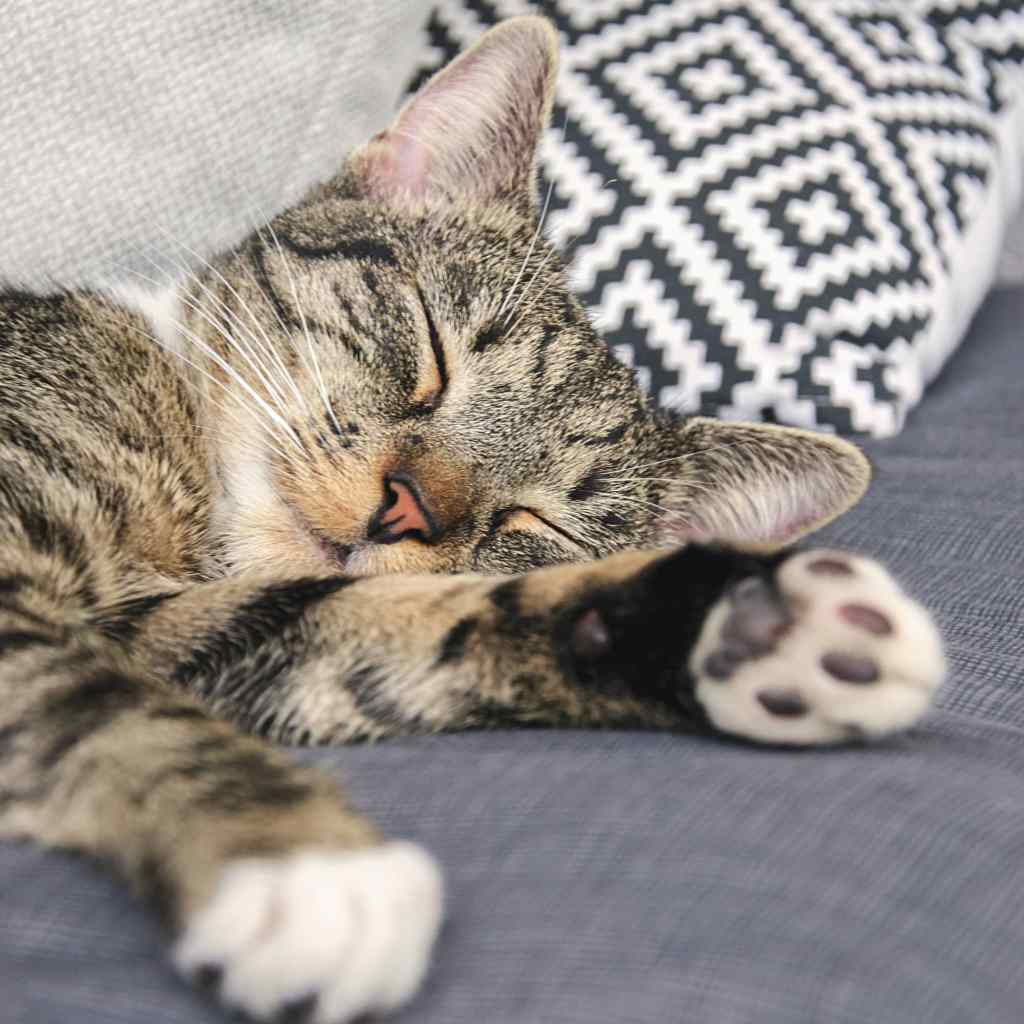If you’ve noticed your feline pal sleeping more lately, it might just be more than cold weather laziness (which we could totally relate to). Cats already sleep a lot, with some sleeping up to 20 hours in a 24-hour period. This is due to their inner primal instinct, which is hardwired to sleep during the day and hunt at night, and for energy conservation. But if your cat is curling up even more often in bed lately, it might have to do with the winter season.
According to veterinarian Dr. Justin Shmalberg, DVM, who is a clinical associate professor at the University of Florida and Chief Nutrition Officer of Nom Nom, “there are certainly seasonal variations in cats with access to the outdoors when it comes to how many calories they burn and the concentration of hormones like melatonin.” These factors could indicate that cats are less active in the winter. Dr. Ignacio Casali, DVM, adds to that point, citing that “the endocrine and nervous system have a great effect on cats’ behaviors such as sleeping, foraging and reproduction. These two systems are affected by the circadian and circannual rhythm.” Circadian rhythms are physical, mental, and behavioral changes that follow a 24-hour cycle and respond to light and dark, while circannual rhythms involve biological or psychological processes that occur or fluctuate at intervals of one year, such as the seasonal changes in behavior of some migratory birds. These points could indicate that cats’ natural processes, like sleeping, could be affected by the winter season.
That being said, Dr. Shmalberg is quick to note that “a strictly indoors environment may throw all of that logic off since artificial light likely has some effect on their sense of seasons. And most cats are pretty inactive in a home environment, so finding a change could take some serious detective work on your cat’s whereabouts and activities when you’re not home.” In other words, if your cat is always indoors, being affected internally by the winter season might be a rare case.
Whether your cat sticks more to the indoors on their cat bed (or your bed, or sofa, or the curtain rod) or is more of an outside dweller, it’s important to cover all your bases irrespective of season to make sure your cat is healthy. Dr. Shmalberg points out that “it’s always good to first be sure they’re not overweight – as statistics suggest most of our cats are – as this can dramatically impact activity level, as can arthritis, which cats are otherwise good at hiding and which can be detected by your vet.”
These outside factors can play a crucial role in your cat’s sleep function, so making sure they’re in tip top shape and then thinking about seasonal changes is key. Plus, an owner’s activity levels can affect cats too – Dr. Shmalberg adds that “some vets feel strongly that any increased sleeping by indoor cats is more related to a reduction in the activities of their owners, so it’s always good to keep them engaged and active, regardless of season.” If their activity level is low, consider giving your cat some outdoor time or adding a few cat toys to the mix to keep them energized.

